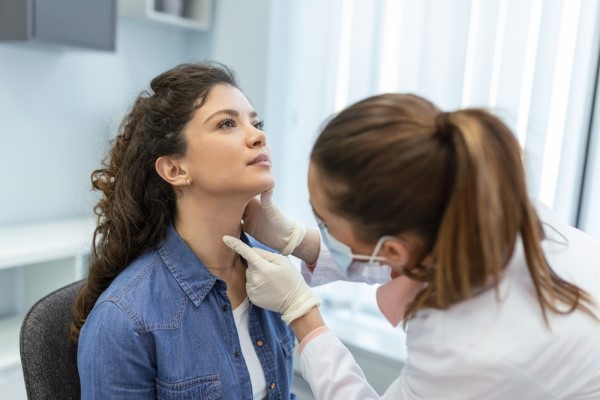5 Tips From a Walk-In Clinic to Help Avoid the Flu

Walk-in clinics across the nation are flooded with cases of the flu every year. A highly contagious virus that causes aches, pains and a high fever, influenza affects anywhere from 5 to 20 percent of the U.S. population. That is about 31 million outpatient visits to walk-in clinics each year.
Now, imagine if just a small percentage of those flu cases took steps to prevent the flu before it has the chance to affect them. That would free up walk-in clinics of millions of appointments per year and would result in a much healthier population.
Five steps to avoid the flu
1. Know the symptoms
The common cold and the flu virus can share many symptoms. Despite their similarities, these two viruses are vastly different. Symptoms of a cold tend to arise gradually, while the onset of flu symptoms is sudden and intense.
2. Realize when you are contagious
The flu can be contagious up to one day before symptoms present. Even though you are not feeling particularly unwell yet, still exercise caution when touching doorknobs and interacting with others. Any time you feel the need to sneeze or cough, cover your mouth and nose with the inner elbow. This will prevent the spread of the disease by blocking droplets of mucus from entering the air.
3. Wash your hands
The flu is spread through person-to-person contact. Someone with the flu can spread it to others who are nearby, up to six feet away. Most walk-in clinic doctors suggest that the flu is mainly spread by tiny droplets produced when the afflicted sneeze, cough or even talk. These actions propel these contagion droplets into the air, where they land in the mouths or noses of people who are close by. Once the disease has been inhaled into the lungs, it begins to rapidly move through the body and replicate.
These mucus droplets can also be transferred to objects touched by someone with the flu. Washing your hands keeps germs at bay, especially after touching public objects like doorknobs and interacting directly with a sick person.
4. Get a flu shot
The flu shot protects many from contracting the virus throughout the year. Season flu vaccines are designed to counteract three or four different flu viruses that are the most common in that particular flu season. The vaccine works quickly by building antibodies against those strains of flu infection. Keep in mind that the vaccine may cause mild side effects, but it is a myth that the flu shot can actually give you the virus.
5. Support your immune system
Giving the body the boost it needs to get through flu season is valuable, to say the least. Taking good care of your body by feeding it healthy nutrients and supplements will help support the immune system. When the immune system is healthy, it can fight off disease more effectively.
Some have weakened immune systems, such as those with autoimmune disorders, young children and the elderly. Those with allergies, asthma and who are taking certain medications can catch the flu more easily.
Let's get started
To help your whole body health and support its natural defenses against illness, eat plenty of fruits and vegetables, exercise daily, practice stress-reducing methods and always get seven to nine hours of sleep every night.
Request an appointment here: https://www.janeylhammonsnpc.com or call Janey L Hammons NP-C at (580) 922-4406 for an appointment in our Seiling office.
Check out what others are saying about our services on Yelp: Read our Yelp reviews.
Recent Posts
Women's health exams help ensure overall health while screening for conditions and health risks. Not only will the doctor help with any current symptoms, but they can also screen for conditions like breast and cervical cancer in otherwise healthy patients. Despite the importance of these exams, it is common to feel uncomfortable about receiving them.…
Adult sick visits help with sudden medical needs in between checkups. Mild to moderate illness or injury does not always get better with home care alone. When this happens, adult sick visits can help people feel better faster and get back to their lives.Adult sick visits are appointments patients make with a doctor when they…
Sports physicals, or preparticipation physical evaluations (PE), are necessary to ensure a young athlete's safety when performing their chosen sport. Though they may seem intimidating, these evaluations can greatly improve athletes' chances of qualifying for their desired sport and help them better adjust to pain points within their performance and body. Learning what to expect…
A general practitioner, or GP, can help patients with acute and chronic health conditions. They can provide referrals to specialists and other healthcare providers, as well. Learn about the many services you can find at a general practitioner’s office.General practitioners are often referred to as primary care providers, or PCPs, as they serve as a…


